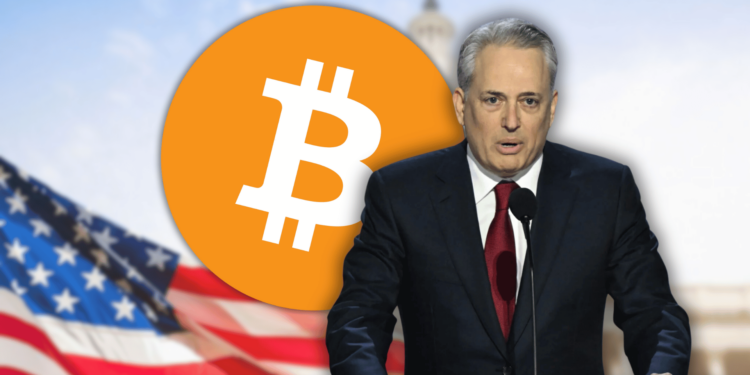- Trump’s crypto czar David Sacks announced plans to evaluate the creation of a U.S. Bitcoin reserve.
- Polymarket raised the odds of a Bitcoin reserve in 2025 to 48% following the press conference.
- Senator Hagerty introduced a stablecoin bill, with Senate Banking Committee Chair Tim Scott prioritizing it for discussion.
President Donald Trump’s crypto czar, David Sacks, revealed that his team is exploring the creation of a U.S. Bitcoin reserve. Speaking at a press conference on Capitol Hill, Sacks emphasized that while they’re in the early stages, evaluating the feasibility of a Bitcoin reserve is a top priority for the administration.
“We’re still at the very early stages of this,” Sacks said, “but it’s one of the first things we’re going to look at.” He added that this task is just one of several assigned to the administration’s crypto working group, established through Trump’s executive order on digital assets.
A Bitcoin Reserve on the Horizon?
With Trump’s team still awaiting the swearing-in of key members, Polymarket now places the odds of a U.S. Bitcoin reserve in 2025 at 48% following Sacks’ announcement. Once the crypto team is fully operational, the reserve will take center stage in their initiatives.

Sacks expressed optimism about the future of digital assets, calling crypto a “week-one priority” for the administration. “We’re entering a golden age for digital assets,” he said, signaling an era of heightened government engagement with the crypto sector.
Stablecoin Regulation on the Agenda
Another top priority for the administration is the development of stablecoin legislation. On Tuesday, Senator Bill Hagerty introduced a bill proposing a regulatory framework for stablecoin issuers, splitting oversight between state and federal authorities. Senator Tim Scott, the new chairman of the Senate Banking Committee, announced that stablecoin regulation would be the committee’s first order of business.
As the administration moves forward, the dual focus on a Bitcoin reserve and stablecoin oversight highlights a broader push to establish clear, supportive policies for digital assets in the U.S.














